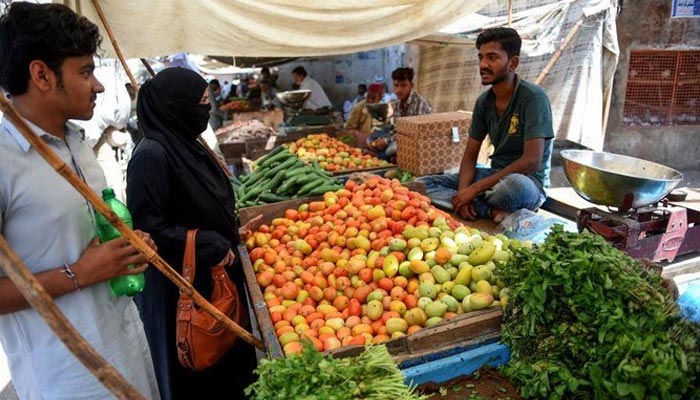ISLAMABAD, July 1(ABC): The inflation rate in Pakistan spiked to 21.3% in June — the highest pace since 2008 — because of exponential growth in the prices of petroleum products, the Pakistan Bureau of Statistics (PBS) reported on Friday.
On a month-on-month basis, inflation soared to a 30-year high as it clocked in at 6.3% in the last month of the fiscal year 2021-22, compared to an increase of 0.4% in the previous month and a decrease of 0.3% in May 2021.
According to the PBS, the CPI-based inflation rate jumped 19.8% in urban areas and 23.6% in villages and towns.
“An increase came on the back of three sectors — food, transport, and housing and electricity,” she said, identifying four major reasons behind the whopping increase:
- Low-base effect;
- Removal of subsidies on petroleum products;
- Increase in electricity tariffs; and
- Rising price of food items.
The analyst was of the view that the impact of a significant increase in the price of petroleum products as the coalition government rolled back the subsidies provided by the Imran Khan-led government was significantly reflected in June’s inflation rate.
Tawfiq elaborated that an increase in electricity tariff played a major role in the rise of the housing index.
The inflation rate remained double-digit — which has eroded people’s purchasing power — due to an increase in the prices of food items and petroleum products, which are now taxed by the government. The pace of food inflation surged by 24% in cities and 27% in villages and towns last month.
The prices of both non-perishable and perishable food products increased significantly last month. The food group saw over a 24% increase in prices in June compared to the same month a year ago. Prices of perishable food items increased by 36.34%, according to the PBS.
Non-food inflation increased by 17.3% in urban areas and 20.4% in rural areas, according to the national data collecting agency.
Core inflation — calculated after excluding food and energy goods — jumped by 11.5% in urban areas and 13.6% in rural areas. Tawfiq maintained that a continuous increase in core inflation was “alarming”.

